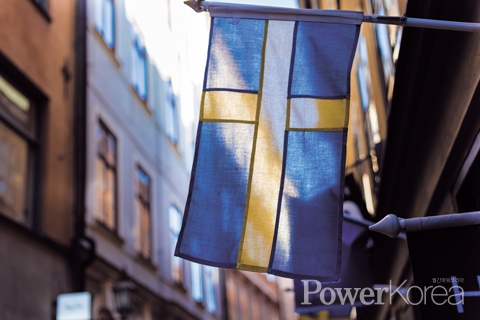 |
||
Population
There are 10 million people in Sweden, of whom about 2 million are under the age of 18. Eighty-five percent of them live in cities. Sweden is a very multicultural country: 15 per cent of Swedes were born in another country, while about one in five children in Sweden has a family with roots in another country.
Geography
The capital of Sweden, Stockholm, is also the country’s largest city, with more than 950,000 inhabitants. Other large cities are Gothenburg, in western Sweden (population 570,000), and Malmö (population 340,000) in the south. Uppsala and Lund are well-known university cities. Less than three per cent of Sweden’s land area is built up and forests cover 69 per cent of the country. Sweden is long – some 1,574 kilometres from top to bottom – and can be divided into three major regions: Götaland in the south, Svealand in the middle and Norrland in the north.
Language
Swedish is the official language of Sweden. The vast majority of Swedes also speak English, and generally to a very high level. Many Swedish multinational organisations have English as their corporate language, and a large number of university degree programmes and courses are taught in English. Sweden is home to five official national minority languages, and countless other languages are spoken by Sweden’s diverse population. The largest, after Swedish, are Finnish, Serbo-Croatian, Arabic, Kurdish, Spanish, German and Farsi (source, in Swedish).
Government
Sweden is a parliamentary democracy. The main political parties are grouped into two blocs: a left-of-centre bloc consisting of the Social Democrats, the Left Party and the Green Party; and the centre-right bloc consisting of the Moderate Party, the Centre Party, the Christian Democrats and the Liberal Party. Sweden’s parliament is called the Riksdag, to which members are elected every four years. The Swedish head of state since 1973 has been King Carl XVI Gustaf. He has no political power, but represents the country and performs ceremonial duties. Sweden is a member of the European Union, but has its own currency, the krona, or Swedish crown.
Lifestyle
Swedes study and work hard but they also take their rest and relaxation seriously. So the fika – a coffee break that normally consists of coffee or tea, cookies or sweet buns, but can also include soft drinks, fruit and sandwiches – is a social institution and an important part of the national culture. You can fika (it’s a verb as well as a noun) with your family or on your first date. Lagom is an important and often-used word in Sweden. Meaning good enough, or just right, it sums up Swedish cultural and social ideals of equality and fairness. Openness and equality are also important concepts. Homosexual relations have been legal since 1944, and same sex couples have been able to adopt since 2003 and get married since 2009. The country was the first in the world with freedom of the press (1766), and is at the top of global press freedom rankings.
Religion
Sweden is a very secular country, but most of the world’s religions are represented here – and all are welcome. The national church, the Church of Sweden, is Lutheran, but Catholicism and other Christian denominations are also widespread. Islam is one of the largest religions in Sweden, and Judaism and Buddhism are also well-established.
The biggest Swedish holidays include Midsummer, Christmas and Easter.
Culture
From Abba to Ingmar Bergman to Avicii, Sweden is a major exporter of culture, and the world’s biggest exporter of pop music in relation to GDP. Another global Swedish hit in recent years has been the so-called Nordic noir literary genre, led by Henning Mankell and Stieg Larsson. Look backwards in time and you have cultural heavyweights like Bergman – widely regarded as one of the leading directors in the history of film – and August Strindberg, the respected and highly influential dramatist. There are countless opportunities to get involved in Sweden’s cultural life through the concerts, plays, gigs and exhibitions held the length and breadth of the country, year-round.
Environment
Swedes hold nature in high esteem, which is one reason why environmental issues are so important here. Only one per cent of solid waste goes to landfill in Sweden – with the rest recycled or used to produce heat, electricity or vehicle fuel in the form of biogas. Renewable energy sources account for more than half (52 per cent) of Swedish energy production. Swedish environmental technology companies export their green knowhow to the rest of the world in technology areas such as biofuels, bioenergy, windpower, solar power and wastewater treatment.
Innovation
By any measure, Sweden is one of the world’s most innovative nations, and it has been called the most digitally connected economy. Swedes are early adopters of new technology and the country’s non-hierarchical society creates a fertile environment for new ideas. The Swedish government invests a higher proportion of GDP in R&D than most other nations. Generations of innovativeness have led to a long list of world-changing inventions like the three-point seatbelt, the pacemaker, the adjustable wrench and safety matches. More recent Swedish inventions include Spotify and Skype.
Most Known Swedish Brands in South Korea
H&M, Ikea, Volvo
김종관 기자 powerkorea_j@naver.com







